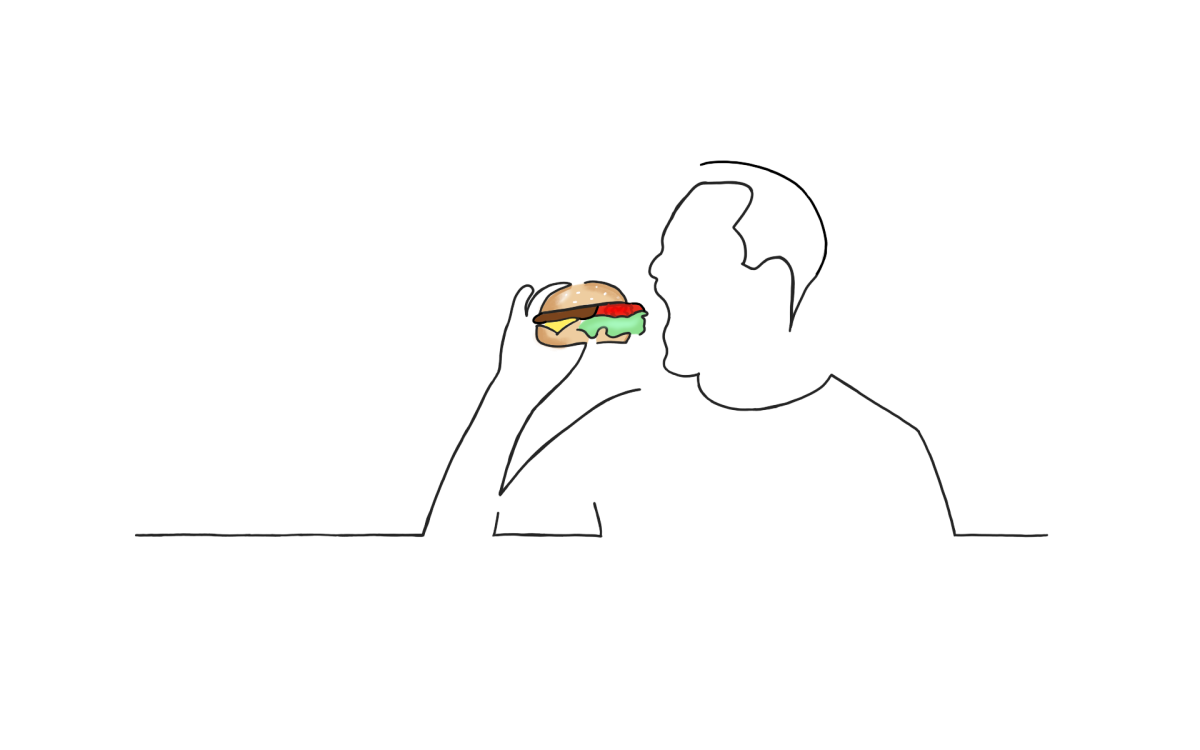Another sleepless night
How much sleep do you get on a weekly basis? Are you feeling tired more often than not? Do you find yourself sick time and time again? Irritable? As it turns out, sleep is a large factor of the ways we feel, behave, and grow.
It’s been documented that while adolescents need roughly 10 hours of sleep, they are often going to bed long after their parents, yet wake up to get to school at approximately the same time as adults, who require just eight hours. Younger children are the exact opposite. They tend to wake up and go to sleep much earlier than their guardians.
What causes such a shift from child to teen to adolescent? It all focuses on the circadian rhythm, also known as the internal clock. Right before puberty, one can expect a child to become drowsy around 8-9 p.m. Later in life, that same child, now a young adult, will start to get tired around 10-11 p.m. These teens, due to their need of 10 hours of sleep, should be waking up around 8-9 a.m. This is not the reality, however, when school begins at 8 a.m. and buses leave far before then.
It’s actually in direct conflict with most educational systems, which typically start at or before 8 a.m. It’s not ideal for students who have jobs, sports, or homework after school either and many take on all of the above. Despite all this, many adults claim teens are lazy, when in truth, all they’re doing is listening to their body’s needs.
The issue of sleep is commonly misunderstood, and its importance is wildly misconstrued. Rest is a way for the immune system to strengthen itself. Every part of the sleep cycle, however, has its own role. The first stage of sleep, the pre-REM cycle of sleep, is the body’s way of preparing itself for the next day. In this stage cells, tissues, and DNA are repaired. The next stage is when you fall into a deep sleep, REM sleep, where the brain will focus on processing new information and motor skills introduced to you. It will commit some to memory allowing them to be retained, while others will fall into an abyss and be forgotten.
Teens, who arguably need it the most, seem to be among the majority of those lacking much needed sleep. With the stress of school, stacked with a job or sport, an inadequate amount of sleep is common. This can have detrimental effects such as an injury risk increase and reaction time decrease. The probability of achieving obesity and diabetes increases. Mental health plummets: lack of sleep affects memory, focus, attention and behavior. Studies show that sleeping less than six hours a night drastically increases the probability of having a stroke.
These problems only worsen as individuals reach sleep deprivation. In the United States alone, 70% of teens and adults report that they receive an insufficient amount of sleep multiple times throughout a month. Another11% of adults report an insufficient amount every night. Only 9% of teens actually reach their recommended hours.
“When I was a teenager I didn’t want to go to sleep but now I love sleep,” said Marshfield High School P.E. teacher Cherie Godly. “I think there were just so many other things I wanted to do more than I wanted to sleep. But now I really do realize if I don’t get enough sleep I don’t feel good.”
Sleep deprivation can cause inflammation, hallucinations, high blood pressure, and a surplus of other issues
While this can occur for many reasons the science behind it is that a lack of sleep causes different waste build up in the brain. While awake, cells use energy which is then broken down into byproducts, which includes adenosine. When you’ve stayed up longer than the body would like, a sort of urge to sleep builds. This is called sleep pressure and is a result of adenosine. This phenomenon is the result of adenosine build up and can be referred to as sleep pressure.
Coffee, used as a way to wake up, works so well as it blocks adenosine receptor pathways, meaning the lull of sleep isn’t as strong. Other byproducts build up in the brain as well, and are thought to be the cause of the negative symptoms listed above.
It’s never too late to improve your health, especially when in regards to something as essential as sleep. Astoria High School student Len Bergman studied sleep, and a lack thereof, as part of a school project.
“I’ve always valued my sleep, even as a kid,” said Bergman. “I have always avoided staying up late or sacrificing my sleep to get something done, no matter how important it seemed at the time.”
Bergman also suggests finding a way to not really fixate on a schedule but on sleep itself.
“I’ve had periods of time when I woke up at a specific time, 5 a.m. for a month, for example, but it hasn’t ever lasted more than a month,” Bergman said. “So I began focusing on shifting my mindset around sleep rather than trying to stick to specific times.”
They suggest many options to improve your sleep schedules, including how they handle bedtime. Setting a routine and following it even on non-school days helps.
“When it comes to falling asleep, my approach is to do as many things to take pressure off of myself as possible by quieting my mind and allowing my body to relax,” said Bergman. “If I don’t feel tired, or I wake up in the middle of the night, I don’t just keep laying in bed. I do something relaxing like reading or drawing until I feel like I can fall asleep, and then I try again.”
Even on the weekends, getting enough sleep is important. Be sure to have a relaxing environment with little to no distractions. Try to limit long daytime naps, especially close to bedtime. Stay away from electronics such as phones, TV’s, and IPads. Instead, try reading. Diet can play a factor in restlessness so consider the things eaten throughout the day and avoid a large meal before bed. Avoiding caffeine in the afternoon and evening may help.
“Well they say routine [helps you sleep better],” said Marshfield High School science teacher Chelsea Seedborg. “You know like what you would do for a baby, where you bathe them, give them a bottle, sing to them and lay them down in a quiet environment. I think it’s a similar idea for adults, like I actually drink tea at night, but I don’t like to take a bath at night. I try to limit that [TV] for my children before they go to bed and no video games two hours before they go to bed because it stimulates the brain.”
Many times people don’t even try to improve their sleep as they feel they can’t check off everything on the ‘perfect sleep’ list, but the truth is any kind of improvement can have a positive effect. The trick seems to be to take what is needed, or what will work for your personal lifestyle.
Your donation will support the student journalists of Marshfield High School. Your contribution will allow us to purchase equipment and cover our annual website hosting costs.

Senior Siena Beckett is a third-year member of The Marshfield Times and Managing Editor. This is currently her second year being the Publicist for ASB....

Sophomore Becky DeGan is a second-year member of the Marshfield Times Staff. She is very involved in Speech and Debate, the National Honors Society and...


























